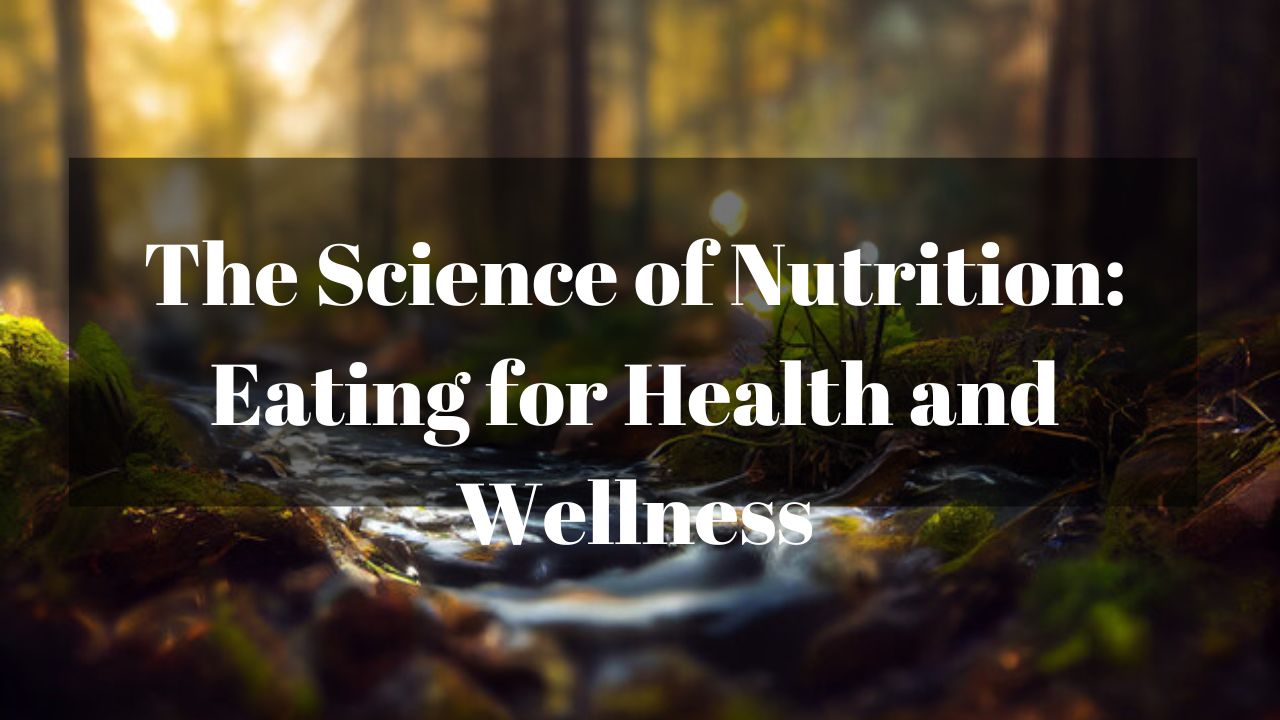The Science of Nutrition: Eating for Health and Wellness
Nutrition is not just about what we eat; it’s a fundamental aspect of our overall health and wellness. In the intricate dance of biology, the science of nutrition plays a pivotal role in nourishing our bodies, supporting optimal function, and preventing diseases. This article explores the science behind nutrition, offering insights into the principles of a balanced diet and the impact of food on our well-being.
The Basics of Nutrition:
At its core, nutrition is the study of how our bodies obtain and utilize nutrients from the foods we consume. Nutrients are substances essential for growth, energy production, and maintaining bodily functions. They include macronutrients like carbohydrates, proteins, and fats, as well as micronutrients such as vitamins and minerals.
Macronutrients: The Building Blocks of Energy:
Macronutrients are nutrients that provide the energy necessary for our daily activities. Carbohydrates are the body’s primary source of energy, proteins are vital for tissue repair and growth, and fats play a crucial role in energy storage and absorption of fat-soluble vitamins. A balanced diet includes an appropriate distribution of these macronutrients.
Micronutrients: Essential for Health:
Micronutrients are nutrients required in smaller quantities but are equally essential for overall health. Vitamins and minerals contribute to various bodily functions, including immune system support, bone health, and antioxidant protection. Consuming a diverse range of fruits, vegetables, and whole foods ensures an adequate intake of micronutrients.
Caloric Intake and Energy Balance:
Maintaining a healthy weight involves balancing caloric intake with energy expenditure. Consuming more calories than the body needs leads to weight gain, while a calorie deficit results in weight loss. Understanding individual caloric needs based on factors like age, gender, activity level, and metabolism is crucial for achieving and maintaining a healthy weight.
Whole Foods vs. Processed Foods:
The quality of the food we consume is as important as the quantity. Whole foods, such as fruits, vegetables, whole grains, and lean proteins, provide essential nutrients without unnecessary additives. In contrast, processed foods often contain high levels of added sugars, unhealthy fats, and preservatives, contributing to a less nutritious diet.
Dietary Fiber: Supporting Digestive Health:
Dietary fiber, found in fruits, vegetables, whole grains, and legumes, is essential for digestive health. Fiber aids in proper digestion, helps prevent constipation, and supports a healthy gut microbiome. Including an ample amount of fiber in the diet contributes to overall well-being.
Hydration: The Forgotten Nutrient:
Water is often overlooked as a vital nutrient, yet it plays a crucial role in various bodily functions. Staying hydrated supports optimal digestion, nutrient absorption, temperature regulation, and overall cellular function. Aim to consume an adequate amount of water daily, adjusting based on factors like climate, physical activity, and individual needs.
Nutrient Timing: Optimizing Performance:
The timing of nutrient intake can impact performance, recovery, and overall well-being. Consuming a balanced meal or snack that includes carbohydrates and proteins before and after physical activity supports energy levels, muscle repair, and recovery. Tailoring nutrient intake to match daily activities can optimize performance and enhance overall health.
Personalized Nutrition: Understanding Individual Needs:
While general dietary guidelines provide a foundation for healthy eating, individual nutritional needs can vary. Factors such as genetics, metabolism, and specific health conditions influence how our bodies respond to different nutrients. Personalized nutrition involves tailoring dietary choices to meet individual requirements, optimizing health outcomes.
The Role of Nutritional Science in Disease Prevention:
Nutritional science plays a crucial role in disease prevention. Research shows that a diet rich in fruits, vegetables, whole grains, and lean proteins can reduce the risk of chronic diseases such as heart disease, diabetes, and certain cancers. Understanding the impact of dietary choices on health empowers individuals to make informed decisions for disease prevention.
Eating for Mental Health: The Gut-Brain Connection:
Emerging research highlights the connection between gut health and mental well-being. The gut-brain axis, a bidirectional communication system between the gut and the brain, suggests that the foods we eat can influence mood, cognitive function, and mental health. Prioritizing a nutrient-rich diet supports both physical and mental well-being.
Navigating Nutrition Trends: Separating Fact from Fiction:
In a landscape filled with nutrition trends and fad diets, it’s essential to approach information critically. Scientifically backed recommendations, such as those from reputable health organizations, provide a solid foundation for making dietary choices. Consultation with healthcare professionals or registered dietitians can offer personalized guidance.
Conclusion:
The science of nutrition is a vast and evolving field that empowers individuals to make informed choices for their health and well-being. By understanding the roles of macronutrients and micronutrients, embracing whole foods, staying hydrated, and considering personalized nutritional needs, individuals can create a foundation for a healthy lifestyle.
Nutrition is not just about counting calories; it’s about nourishing the body with the right balance of nutrients to support optimal function and prevent diseases. As research continues to unveil the intricate connections between diet and health, embracing evidence-based nutritional practices becomes a powerful tool for enhancing overall well-being. In the journey toward health and wellness, knowledge of nutritional science serves as a compass, guiding individuals toward choices that contribute to a vibrant and fulfilling life.











